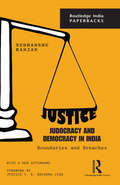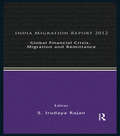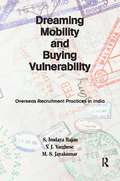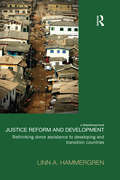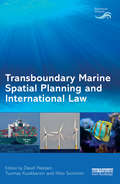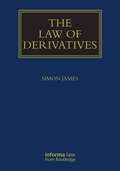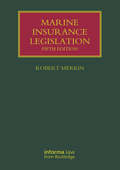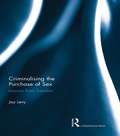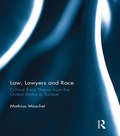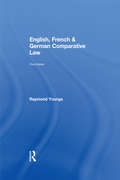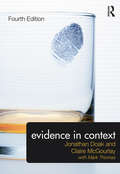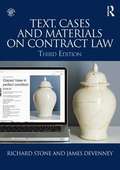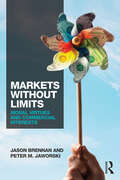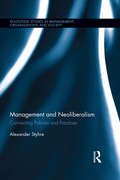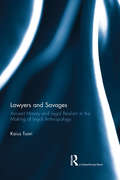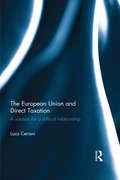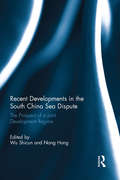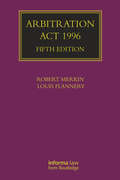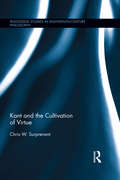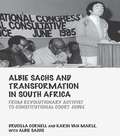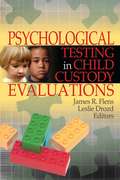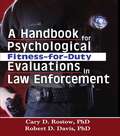- Table View
- List View
Justice, Judocracy and Democracy in India: Boundaries and Breaches
by Sudhanshu RanjanThis book offers an innovative approach to studying ‘judicial activism’ in the Indian context in tracing its history and relevance since 1773. While discussing the varying roles of the judiciary, it delineates the boundaries of different organs of the State — judiciary, executive and legislature — and highlights the points where these boundaries have been breached, especially through judicial interventions in parliamentary affairs and their role in governance and policy. Including a fascinating range of sources such as legal cases, books, newspapers, periodicals, lectures, historical texts and records, the author presents the complex sides of the arguments persuasively, and contributes to new ways of understanding the functioning of the judiciary in India. This paperback edition, with a new Afterword, updates the debates around the raging questions facing the Indian judiciary. It will be of great interest to students and scholars of law, political science and history, as well as legal practitioners and the general reader.
India Migration Report 2012: Global Financial Crisis, Migration and Remittances (India Migration Report)
by S. Irudaya RajanThis volume is a collection of articles dealing with various dimensions of the Global Financial Crisis and its economic and social impact in terms of governance, emigration, remittances, return migration and re-integration. The crisis, which had its origin in the United States in 2008, spread its economic effects on developed as well as developing countries. Some of these countries were able to recover in the short run while some are in the process of recovery, with continuous efforts by both national governments and international agencies. In this backdrop, is there any impact on the outflow of emigrants from the countries of origin and inflow of remittances to the countries of destination? The third volume in the annual series ‘India Migration Report’ answers the question through rigorous quantitative and qualitative analyses and fieldwork both in the Gulf region and South Asia, and concludes that both emigration and remittances are more resilient than expected. This report: contains findings based on an extensive survey conducted in Kerala; has additional evaluations based on other surveys and case studies conducted in different parts of India, Pakistan, Bangladesh, Nepal and Sri Lanka to reflect on the consequences of the global crisis on the countries of origin, as well as a quick assessment and site visits to the United Arab Emirates, Kuwait, Qatar and Malaysia; includes essays that examine the linkages between emigration and remittances based on international data from the World Bank, the International Labour Organization, the International Organization of Migration, the United Nations and other organizations that closely deal with international migration. It will be of interest to students and scholars of migration studies, sociology, law, economics, gender studies, diaspora studies, international relations and demography, apart from non-governmental organizations, policy-makers and government institutions working in the field of migration.
Dreaming Mobility and Buying Vulnerability: Overseas Recruitment Practices in India
by S. Irudaya Rajan V. J. Varghese M. S. JayakumarIn the alarming contemporary context of widespread corruption and fraudulence in the overseas labour recruitment system in India, this book attempts to understand the institution of emigration governance and recruitment practices in the country with a focus on the unskilled and semi-skilled sectors. It brings together the results of research in the major emigration hubs of India with the aid of quantitative and qualitative tools, drawing from all the major stakeholders —intending emigrants, recruiting agents, return emigrants, emigrant households, Protector of Emigrants, foreign employers, foreign recruiting agents, Indian missions and emigrant workers at the destination countries. The book unravels the underlying discriminatory rationality of the existing system of emigration governance, its logical and structural incoherencies and the consequent inefficacy in protecting the most vulnerable sections of workers leaving India for overseas employment, resulting in unaffordable levels of transaction and social costs. By outlining the institutional failure, the volume outlines the fundamental principles of a new institution which would facilitate orderly, safe and secure emigration, economically sustainable beneficial expatriate life and social protection after the emigrants return. The book will be of interest to students and scholars of sociology, law, economics, demography, anthropology, history, gender studies, cultural studies, Diaspora studies, migration studies and international relations, apart from policy-makers and administrators of transnational migration and NGOs working in the field of migration.
Justice Reform and Development: Rethinking Donor Assistance to Developing and Transitional Countries (Law, Development and Globalization)
by Linn A. HammergrenThis book explores the objectives pursued in donor programs, the methods used to advance them, and the underlying assumptions and strategies. It emphasizes the unexpected and sometimes unpleasant consequences of ignoring not only political and societal constraints but also advances in our technical approaches to performance improvement, the one area where the First World has a comparative advantage. The geographic scope of the work is broad, incorporating examples from Eastern and Central Europe, Latin America, Africa, and the Asia-Pacific region as well as from several First World nations. Justice Reform and Development examines First World assistance to justice or "rule of law" reforms in developing and transitional societies, arguing that its purported failure is vastly exaggerated, largely because of unrealistic expectations as to what could be accomplished. Change nonetheless is needed if the programs are to continue and would be best based on targeting specific performance problems, incorporation of donor countries’ experience with their own reforms, and greater attention to relevant research. While contributing to an on-going debate among practitioners and academics involved in justice programs, this book will also be accessible to readers with little exposure to the topics, especially advanced undergraduate and graduate students in law, political science and areas studies.
Transboundary Marine Spatial Planning and International Law (Earthscan Oceans)
by Daud Hassan Tuomas Kuokkanen Niko SoininenMarine Spatial Planning (MSP) is an integrated and comprehensive approach to ocean governance and is used to establish a rational use of marine space and reconcile conflicting interests of its users. MSP allows both a high level of environmental protection and a wide range of human activities and emphasizes coordinated networks of national, regional and global institutions. This book focuses on the framework of international law behind MSP and especially on the transboundary aspects of MSP. It first sets out a general framework for transboundary MSP and then moves on to compare and assess differences and similarities between different regions. Specific detailed case studies include the EU with the focus on the Baltic Sea and North Sea, the Bay of Bengal and Great Barrier Reef in Australia. The authors examine the national and regional significance of MSP from an integrated and sustainable ocean governance point of view. They also show how transboundary MSP can create opportunities and positive initiatives for cross-border cooperation and contribute to the effective protection of the regional marine environment.
The Law of Derivatives
by Simon JamesThis volume focuses on the legal risks arising in English law in the course of derivatives transactions. It discusses the following issues: the legal risks arising in the negotiation and conduct of derivatives transactions; the regulation of the derivatives market; the capacity to enter into derivatives transactions and the standard term upon which this is done; the consequences of default by a counterparty; and the standard terms on which derivatives are entered into, particularly the ISDA Master Agreement.
Marine Insurance Legislation (Lloyd's Shipping Law Library)
by Robert Merkin Aysegul Bugra Johanna Hjalmarsson Jennifer LavelleProviding thorough, up-to-date coverage of the operation of marine insurance legislation, this text is an essential resource for today's marine insurance professional. Designed with the reader in mind, previous editions of this book have been heavily praised for its accessible and highly-practical format. Section by section, the authors deliver expert commentary on the Marine Insurance Act 1906 and related marine insurance legislation. The origin of each section or provision is clearly explained, along with the authorities decided since the legislation came into force. New to this edition: Heavily revised with the very latest case law since 2010, some of which having a dramatic effect on the law of marine insurance. The most important cases include The Cendor Mopu and Masefield v Amlin. All relevant new cases have been added from across the common law world Clarification on new legislation such as the Third Parties (Rights against Insurers) Act 2010 and the Consumer Insurance (Disclosure and Representations) Act 2012 The compulsory insurance provisions affecting oil pollution and passengers The rules on jurisdiction and choice of law in the Brussels Regulation and the Rome I Regulation This compressive text is indispensable for marine lawyers, industry professionals, and students of marine insurance law worldwide.
Criminalising the Purchase of Sex: Lessons from Sweden
by Jay LevyIn an attempt to abolish prostitution, Sweden criminalised the purchase of sex in 1999, while simultaneously decriminalising its sale. In so doing, it set itself apart from other European states, promoting itself as the pioneer of a radical approach to prostitution. What has come to be referred to as ‘the Swedish model’ has been enormously influential, and has since been adopted and proposed by other countries. This book establishes the outcomes of this law – and the law’s justifying narratives – for the dynamics of Swedish sex work, and upon the lives of sex workers. Drawing on recent fieldwork undertaken in Sweden over several years, including qualitative interviewing and participant observation, Jay Levy argues that far from being a law to be emulated, the Swedish model has had many detrimental impacts, and has failed to demonstrably decrease levels of prostitution. Criminalising the Purchase of Sex: Lessons from Sweden utilises a wealth of respondent testimony and secondary research to redress the current lack of primary academic research and to contribute to academic discussion on this politically-charged and internationally relevant topic. This original and timely work will be of interest to sex worker rights organisations, policy makers and politicians, as well as researchers, academics and students across a number of related disciplines, including law, sociology, criminology, human geography and gender studies.
Law, Lawyers and Race: Critical Race Theory from the US to Europe
by Mathias MöschelCritical Race Theory (CRT) is virtually unheard of in European scholarship, especially among legal scholars. Law, Lawyers and Race: Critical Race Theory from the United States to Europe endeavours to fill this gap by providing an overview of the definition and consequences of CRT developed in American scholarship and describing its transplantation and application in the continental European context. <P><P> The CRT approach adopted in this book illustrates the reasons why the relationship between race and law in European civil law jurisdictions is far from anodyne. Law plays a critical role in the construction, subordination and discrimination against racial minorities in Europe, making it comparable, albeit in slightly different ways, to the American experience of racial discrimination. Anti-Semitism, Islamophobia, anti-Roma and anti-Black racism constitute a fundamental factor, often tacitly accepted, in the relationship between law and race in Europe. Consequently, the broadly shared anti-race and anti-racist position is problematic because it acts to the detriment of victims of racism while privileging the White, Christian, male majority. <P><P> This book is an original exploration of the relationship between law and race. As such it crosses the disciplinary divide, furthering both legal scholarship and research in Race and Ethnicity Studies.
English, French & German Comparative Law
by Raymond YoungsThis comparative analysis considers the differing approaches to important areas of law in England, France and Germany. In particular, constitutions, sources of law, rights against the state to prevent abuse of power, and rights of private individuals and organisations against each other in tort and contract are examined and compared, and the system of courts is also considered. Updated and revised, each sub-topic is introduced with the relevant material in the English system, allowing easy comparison and assimilation of the other systems. The text includes translations of relevant French and German codal material, and references to relevant cases from all of the jurisdictions. This new edition includes constitutional changes in France and the United Kingdom, in particular the new procedure for challenging existing legislation before the Conseil constitutionnel. It examines the consequences of the Lisbon Treaty, as well as other recent codal and legislative changes. Comprehensive and topical, the text explores a wide variety of new case law on issues such as: preventive detention; the use of evidence obtained by torture; the balance between suppression of terrorism and personal freedom; the internet; email monitoring; artificial reproductive techniques; use of global positioning systems (GPSs), deoxyribonucleic acid (DNA) and closed-circuit television (CCTV); the wearing of religious clothing (such as the headscarf) and symbols (such as the cross); circumcision; methods of crowd control; the prevention of human trafficking; the preservation of privacy, especially for celebrities; and the legality of pre-nuptial agreements and success fees for lawyers. Designed for students on comparative law courses, this textbook will also prove valuable to students who are familiar with English law, but require a readily comprehensible introduction to French or German law.
Foucault, Crime and Power: Problematisations of Crime in the Twentieth Century
by Christian BorchThis book presents a Foucauldian problematisation analysis of crime, with a particular focus on the twentieth century. It considers how crime has been conceived as problem and, by scrutinising the responses that have been adapted to deal with crime, demonstrates how a range of power modalities have evolved throughout the twentieth century. Christian Borch shows how the tendency of criminologists to focus on either disciplinary power or governmentality has neglected the broader complex of Foucault’s concerns: ignoring its historical underpinnings, whilst for the most part limiting studies to only very recent developments, without giving sufficient attention to their historical backdrop. The book uses developments in Denmark – developments that can be readily identified in most other western countries – as a paradigmatic case for understanding how crime has been problematised in the West. Thus, Foucault, Crime and Power: Problematisations of Crime in the Twentieth Century demonstrates that a Foucauldian approach to crime holds greater analytical potentials for criminological research than have so far been recognized.
What is Islamic Philosophy?
by Roy JacksonWhat is Islamic Philosophy? offers a broad introduction to Islamic thought, from its origins to the many challenging issues facing Muslims in the contemporary world. The chapters explore early Islamic philosophy and trace its development through key themes and figures up to the twenty-first century. Topics covered include: ethical issues such as just war, abortion, women’s rights, homosexuality and cloning questions in political philosophy regarding what kind of Islamic state could exist and how democratic can (or should) Islam really be the contribution of Islam to ‘big questions’ such as the existence of God, the concept of the soul, and what constitutes truth. This fresh and original book includes a helpful glossary and suggestions for further reading. It is ideal for students coming to the subject for the first time as well as anyone wanting to learn about the philosophical tradition and dilemmas that are part of the Islamic worldview.
Evidence in Context
by Jonathan Doak Claire McGourlay Mark ThomasEvidence in Context explains the key concepts of evidence law in England and Wales clearly and concisely, set against the backdrop of the broader political and theoretical contexts. The book helps to inform students of the major debates within the field, providing an explanation as to how and why the law has developed as it has. This fourth edition has been revised and expanded to include developments in the law of hearsay evidence as well as recent litigation surrounding witness anonymity orders, bad character and vulnerable witnesses. It also addresses the on-going controversy and debate about the use of expert witnesses. A brand new chapter considers the contentious issue of public interest immunity, and the introductory chapter has been substantially expanded to consider the?continuing interplay between the UK courts and the European Court of Human Rights as the role of human rights in evidence becomes increasingly important. Features include: Key learning points to summarise the major principles of evidence law Practical examples to help students understand how the rules are applied in practice Self-test questions to encourage students to reflect on what they have learned A supporting companion website including answers to self-test questions Well-written, clear and with a logical structure throughout, Evidence in Context contains all the information necessary for any undergraduate evidence law module.
Text, Cases and Materials on Contract Law
by Richard Stone James DevenneyComposed of approximately one-quarter authors' commentaries and three-quarters cases and materials, including academics' articles and extracts from books and Law Commission papers, this book facilitates the development of personal study skills and encourages readers to engage with the leading commentaries in the area. Clearly signposted chapter introductions highlight the salient features under discussion and additional reading collected at the end of each chapter guides further study and independent research. The range of material covered and the straightforward style makes Text, Cases and Materials on Contract Law an invaluable resource for all undergraduate students of contract law.
Shades of Grey - Domestic and Sexual Violence Against Women: Law Reform and Society
by Anna Carline Patricia EastealArguing that law must be looked at holistically, this book investigates the ‘hidden gender’ of the so-called neutral or objective legal principles that structure the law addressing violence against women. Adopting an explicitly feminist perspective, it investigates how legal responses to violence against women presuppose, maintain and perpetuate a certain context that may not in fact reflect women’s experiences. Carline and Easteal draw upon relevant legislation, case law and secondary studies from a range of territories, including Australia, England and Wales, the United States, Canada and Europe, to contextualize and critique different policy responses. They go on to examine the potential and limits of law, making recommendations for best practice models of policymaking and law reform. Aiming to help improve government, community and legal responses to women who experience violence, Shades of Grey – Domestic and Sexual Violence Against Women: Law Reform and Society will assist law-makers, academics, policymakers and a wider audience in understanding the complexities of violence against women.
Markets without Limits: Moral Virtues and Commercial Interests
by Jason F. Brennan Peter JaworskiMay you sell your vote? May you sell your kidney? May gay men pay surrogates to bear them children? May spouses pay each other to watch the kids, do the dishes, or have sex? Should we allow the rich to genetically engineer gifted, beautiful children? Should we allow betting markets on terrorist attacks and natural disasters? Most people shudder at the thought. To put some goods and services for sale offends human dignity. If everything is commodified, then nothing is sacred. The market corrodes our character. Or so most people say. In Markets without Limits, Jason Brennan and Peter Jaworski give markets a fair hearing. The market does not introduce wrongness where there was not any previously. Thus, the authors claim, the question of what rightfully may be bought and sold has a simple answer: if you may do it for free, you may do it for money. Contrary to the conservative consensus, they claim there are no inherent limits to what can be bought and sold, but only restrictions on how we buy and sell.
Management and Neoliberalism: Connecting Policies and Practices (Routledge Studies in Management, Organizations and Society)
by Alexander StyhreAfter the financial collapse of 2008 and the bailing out of banks in the US and the UK, the long-term viability of the neoliberal doctrine has come under new scrutiny. The elimination of regulatory control, the financialization of the economy including the growth of increasingly complex financial innovations, and the dominance of a rentier class have all been subject to thorough criticism. Despite the unexpected meltdown of the financial system and the substantial costs for restoring the finance industry, critics contend that the same decision-makers remain in place and few substantial changes to regulatory control have been made. Even though neoliberal thinking strongly stresses the role of the market and market-based transactions, the organization theory and management literature has been marginally concerned with neoliberalism as a political agenda and economic policy. This book examines the consequences of neoliberalism for management thinking and management practice. Managerial practices in organizations are fundamentally affected by a political agenda emphasizing competition and innovation. Concepts such as auditing, corporate social responsibility, shareholder value, and boundariless careers are some examples of managerial terms and frameworks that are inextricably entangled with the neoliberal agenda. This book introduces the literature on neoliberalism, its history and controversies, and demonstrates where neoliberal thinking has served to rearticulate managerial practice, including in the areas of corporate governance, human resource management, and regulatory control of organizations.
Lawyers and Savages: Ancient History and Legal Realism in the Making of Legal Anthropology
by Kaius TuoriLegal primitivism was a complex phenomenon that combined the study of early European legal traditions with studies of the legal customs of indigenous peoples. Lawyers and Savages: Ancient History and Legal Realism in the Making of Legal Anthropology explores the rise and fall of legal primitivism, and its connection to the colonial encounter. Through examples such as blood feuds, communalism, ordeals, ritual formalism and polygamy, this book traces the intellectual revolution of legal anthropology and demonstrates how this scholarship had a clear impact in legitimating the colonial experience. Detailing how legal realism drew on anthropology in order to help counter the hypothetical constructs of legal formalism, this book also shows how, despite their explicit rejection, the central themes of primitive law continue to influence current ideas – about indigenous legal systems, but also of the place and role of law in development. Written in an engaging style and rich in examples from history and literature, this book will be invaluable to those with interests in legal realism, legal history or legal anthropology.
The European Union and Direct Taxation: A Solution for a Difficult Relationship
by Luca CerioniWithin the European Union, direct taxation is an area which often provokes controversy due to tensions between the tax sovereignty of the individual Member States and the desire for an integrated internal market. This book offers a critical review of the legislative and case-law developments in this area at the EU level, and reviews the European Commission’s proposed solutions in light of their concerns regarding the proper functioning of the EU’s internal market. Luca Cerioni set out a series of benchmarks determined from the objectives expressed by the European Commission, including: the elimination of double taxation and double non-taxation; the simplification of cross-border tax compliance; the reduction of abusive forum-shopping practices and general aggressive tax planning strategies; legal certainty for all businesses and individuals carrying on activities and receiving income in more than one EU Member State. Cerioni uses these benchmarks to ask which Directives and/or rulings have left legal uncertainty, and which have ended up creating or increasing the scope for aggressive tax planning. The book puts forward a comprehensive solution for a new optimal regime relating to tax residence, which would contribute to the EU project to the mutual benefit of Member States and taxpayers. As a thorough and critical discussion of EU tax rules in force, and of the European Court’s case law in direct taxation, this book will be of great use to academic researchers and students of EU law, tax practitioners, and policy-makers at the EU and national level.
Recent Developments in the South China Sea Dispute: The Prospect of a Joint Development Regime
by Wu Shicun Hong NongThe South China Sea region contains potentially huge deposits of petroleum and natural gas, important shipping lanes and fishing areas, and is subject to a number of maritime territorial disputes. This edited volume analyzes the most recent development in the South China Sea dispute looking at the positions taken by China, the ASEAN countries, and the US. In recent years maritime joint development zones have emerged as an important means to overcome deadlock in relation to maritime jurisdictional claims. This book tests the applicability of joint development regime in this region and explores the prospect of joint development of resources as a way to successfully manage the conflict in the South China Sea. Eminent scholars in the field of South China Sea studies have contributed original chapters to the volume covering such issues as: the legal framework for joint development; how joint development might work in practice; the challenges faced by and the prospects arising from joint development; and the way forward for the region.
Arbitration Act 1996: An Annotated Guide (Lloyd's Arbitration Law Library)
by Robert Merkin Louis FlanneryThis book is an essential resource for any legal practitioner involved in any aspect of English arbitration law. It provides a thorough annotation of the Arbitration Act 1996, and contains comprehensive explanations of developments in the relevant case law to each section of the Act.Since the fourth edition of this book, the English courts have decided many important new cases on virtually every aspect of arbitration law. The most important developments relate to: The growth of anti-arbitration injunctions; The use of freezing injunctions against third party assets and the availability of anti-suit injunctions in EU proceedings; The definition of seat, the appointment of arbitrators, choice of applicable law, jurisdiction, the form of the award and the slip rule; Enforcement of foreign awards, and challenges to domestic awards by way of jurisdictional attacks, serious irregularity or error of law In this 5th edition, the notes to each section contain helpful sub-headings and a new Appendix will contain a fully annotated version of CPR Part 62 and the Practice Direction. The book will also be useful for academics and university students of law at all levels seeking an understanding of the 1996 Act, including those on the Legal Practice Course.
Kant and the Cultivation of Virtue: Kant And The Cultivation Of Virtue (Routledge Studies in Eighteenth-Century Philosophy)
by Chris W. SurprenantIn this book, Chris W. Surprenant puts forward an original position concerning Kant’s practical philosophy and the intersection between his moral and political philosophy. Although Kant provides a detailed account of the nature of morality, the nature of human virtue, and how right manifests itself in civil society, he does not explain fully how individuals are able to become virtuous. This book aims to resolve this problem by showing how an individual is able to cultivate virtue, the aim of Kant’s practical philosophy. Through an examination of Kant’s accounts of autonomy, the state, and religion, and their effects on the cultivation of virtue, Surprenant develops a Kantian framework for moral education, and ultimately raises the question of whether or not Kantian virtue is possible in practice.
Albie Sachs and Transformation in South Africa: From Revolutionary Activist to Constitutional Court Judge (Birkbeck Law Press)
by Albie Sachs Drucilla Cornell Karin van MarleMany critical theorists talk and write about the day after the revolution, but few have actually participated in the constitution of a revolutionary government. Emeritus Justice Albie Sachs was a freedom fighter for most of his life. He then played a major role in the negotiating committee for the new constitution of South Africa, and was subsequently appointed to the new Constitutional Court of South Africa. Therefore, the question of what it means to make the transition from a freedom fighter to a participant in a revolutionary government is not abstract, in Hegel’s sense of the word, it is an actual journey that Albie Sachs undertook. The essays in this book raise the complex question of what it actually means to make this transition without selling out to the demands of realism. In addition, the preface written by Emeritus Justice Albie Sachs and his interview with Drucilla Cornell and Karin van Marle, further address key questions about revolution in the twentieth- and twenty-first centuries: from armed struggle to the organization of a nation state committed to ethical transformation in the name of justice. Albie Sachs and transformation in South Africa: from revolutionary activist to constitutional court judge illuminates the theoretical and practical experiences of revolution and its political aftermath. With first-hand accounts alongside academic interrogation, this unique book will intrigue anyone interested in the intersection of Law and Politics.
Psychological Testing in Child Custody Evaluations
by Leslie Drozd James R. FlensA focused look at the uses-and misuses-of psychological tests in the context of child custodyThis book presents an advanced examination of psychological testing and usage in the child custody arena. It addresses test selection issues, provides insightful discussions of how to confront confirmatory biases and avoid the distortion of test findings, and presents clear instructions for the use of specific tests, including MMPI-2 and Rorschach, and a point/counterpoint discussion of the strengths and weaknesses of the Ackerman-Schoendorf Scales for Parent Evaluation of Custody (ASPECT).Psychological Testing in Child Custody Evaluations can be viewed as a work in three parts. The first section addresses theoretical and test usage issues, with chapters focusing on: addressing test selection issues from legal and psychological perspectives bias issues that interfere with the evaluator&’s ability to collect and consider data objectively a functional, comprehensive approach to the use of psychological tests in a child custody evaluation-with a conceptual framework for choosing assessment techniques to assess parenting competencies and other variables important in forming opinions about custodial placement and visitation access, and a practical example of how to present psychological test data in an advisory report to the court a look at psychological testing from an attorney&’s point of viewThe second section of Psychological Testing in Child Custody Evaluations focuses on the MMPI-2 and the Rorschach Inkblot Test in the child custody context, investigating hypotheses that can be inferred from the MMPI-2 regarding parenting behaviors, and the use and value of the Rorschach. This section examines: the foundation from which the MMPI-2 can generate expectations regarding five basic issues-the quality of attachment and bonding, potential for antisocial behavior, temper control, alienation of affection, and chemical abuse and dependence the range of variables that will generate useful hypotheses regarding parent-child interactions and family systems the effects of the circumstances of litigation on score elevations-including recommended limits as to how much elevation can be dismissed as only contextual the important differences between occasion validity and attribute validity the clinical application of an objective interpretation system, including the courtroom credibility of explicit convergent validity the use of the Rorschach in child custody evaluations findings from a study using the Rorschach to address specific parenting variablesThe third section of Psychological Testing in Child Custody Evaluations is a focused point-counterpoint discussion of ASPECT, between test creator Marc J. Ackerman and Mary Connell, President of the American Academy of Forensic Psychology. This book is essential reading for child custody evaluators, family law attorneys, and judges practicing in the family law arena, as well as educators and students in these fields.
A Handbook for Psychological Fitness-for-Duty Evaluations in Law Enforcement
by Cary D. Rostow Robert D. DavisWhile some books about police psychology contain a chapter on the fitness-for-duty question, this is the first comprehensive publication focused exclusively on psychological fitness-for-duty evaluations (FFDEs) for law enforcement personnel. This handbook is ideal for professionals and for coursework designed to prepare individuals for careers as police or municipal officials, psychologists, students, behavioral science specialists, human rights advocates, and attorneys. A helpful glossary makes the book even more useful for students and those who do not have extensive academic or formal training in psychology or public administration. A Handbook for Psychological Fitness-for-Duty Evaluations in Law Enforcement describes in detail the mechanics of setting up a fitness-for-duty methodology and examines the effectiveness of FFDEs in law enforcement. You’ll find clear instructions for developing a FFDE system from the law enforcement executive’s viewpoint (valuable for attorneys, police psychologists, and civil service board members as well), and an extensive bibliography with particular emphasis on laws and cases that provide guidance to psychological and law enforcement professionals. Several appendices provide examples of documentation that can be used in the evaluation process. This book brings you reliable information on: legal precedents, with a review of legal cases (in language appropriate for law enforcement executives and psychologists) the interaction between police culture, psychological assessment, and therapy federal laws that impact FFDEs, including the HIPAA, the Americans with Disabilities Act, the Family Medical Leave Act and the Fair Credit Reporting Act case law and FFDEs, with emphasis on civil rights laws, labor issues, professional ethical dilemmas, and the psychologist as a potential expert witness the proper uses—and the misuses—of the FFDE approach police departmental civil liability and the role that the FFDE plays in addressing legal risks In addition, this book contains a succinct review of psychological testing (psychometrics), and the technicalities of employing a professional psychologist to determine the fitness of commissioned officers. A Handbook for Psychological Fitness-for-Duty Evaluations in Law Enforcement proposes a model law that could be used to improve the utility and effectiveness of FFDEs, and presents a forward-looking discussion of FFDE issues that may become controversial in the near future.
